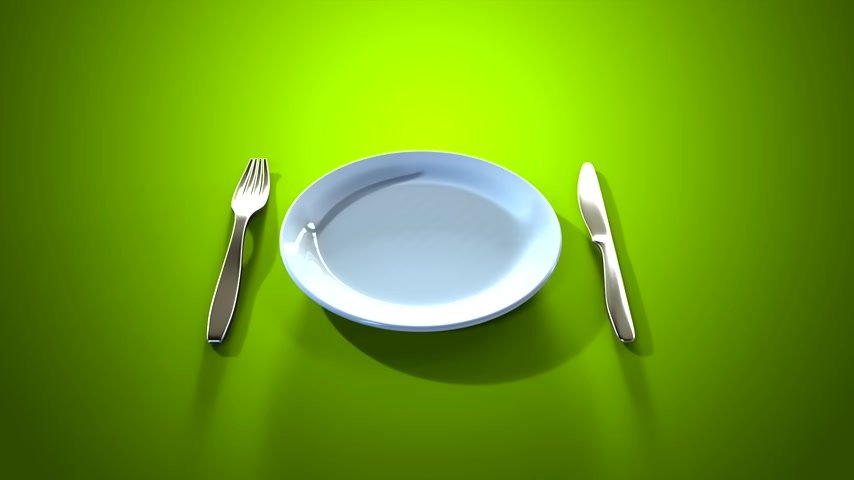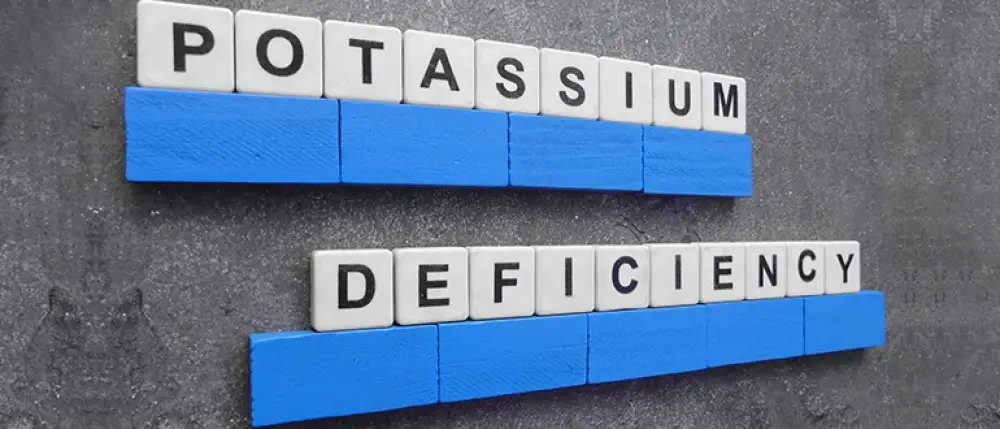Table of Contents
Potassium is an essential mineral that plays a crucial role in various bodily functions, including muscle contractions, nerve impulses, and maintaining fluid balance. A deficiency in potassium, known as hypokalemia, can lead to a range of symptoms that can significantly impact your health and well-being This article explores the common signs and symptoms of potassium deficiency, along with potential causes and how to address this issue.
Potassium Needs
Today , we’re gonna talk about potassium .
And I don’t know if you knew this , but the prehistoric diet , was very high in potassium .
Currently , an average male consumes about 3 , 000 milligrams potassium .
Honestly , I think it’s less than that , but these are the these are the numbers that I got .
Women , about a little more than 2 , 000 milligrams potassium , k , per day .
The RDA for potassium is 47100 .
Here is a table summarizing the key information
| Metric | Pre-historic Diet | Current Average | RDA |
|---|---|---|---|
| Potassium (mg/day) | 7,000 – 15,000 | Men: 3,026 Women: 2,290 | 4,700 |
| Potassium Needs | Description |
|---|---|
| Sodium-Potassium Pump | Each cell in the body has this pump that uses potassium and sodium to create energy and move things around. |
| Potassium to Sodium Ratio | The body needs 4 times as much potassium as sodium for optimal health. |
| Potassium Regulation | The body is flexible with potassium – it can get rid of excess and retain what it needs. |
| Intermittent Fasting | During fasting, the body conserves potassium and requires less. |
| Potassium Deficiency Symptoms | Description |
|---|---|
| High Blood Pressure | Potassium deficiency can lead to high blood pressure. |
| High Pulse Rate | Potassium deficiency can increase pulse rate. |
| Kidney Stones | Potassium deficiency is linked to increased risk of Kidney Stones. |
| Insulin Resistance | Potassium deficiency can impair insulin sensitivity, but increasing intake can improve it. |
| Stroke Risk | Potassium deficiency increases the risk of stroke. |
| Fatigue and Low Endurance | Potassium deficiency causes fatigue and reduces exercise capacity. |
| Cardiac Hypertrophy | Potassium deficiency can lead to enlargement of the heart. |
| Stress, Injury, Surgery | These conditions increase potassium needs and can deplete levels. |
Potassium RDA
Prehistorically , and there’s limited data on this , but the data that I found ranges between 7 , 015 , 000 milligrams of potassium .
That’s a lot of potassium .
Our bodies need a lot of potassium for many reasons .
1 is that each cell has a , sodium potassium pump .
So it uses a lot of those minerals to , create energy and move things around in the body .
Prehistorically , potassium was consumed through greens , tubers and roots .

I’m gonna recommend stick with the greens and not do any type of potatoes .
But the body is very flexible with potassium .
If it has too much , it gets rid of it .
If it doesn’t have enough , it does retain it .
And also when you’re doing intermittent fasting , you will conserve potassium and you won’t need as much .
But the body does hold sodium .
So what’s even a little bit more important than the quantity of these minerals is the ratio of the minerals .
You need 4 times as much potassium to sodium .
Potassium Deficiency Symptoms
An average person in America has a 1 to 4 ratio .
Very light on the potassium , very heavy on the sodium .
Not even from the foods , but from the refined carbs that deplete potassium and then hold sodium .

So when you do a high carb diet , you’re holding a lot of sodium and you’re and you’re losing a lot of potassium .
So you have this severe imbalance .
So when you’re potassium deficient or you’re on a potassium deficient diet , me meaning that you’re not consuming enough vegetables , you tend to get high blood pressure and a high pulse rate eventually .
Kidney stones , insulin resistance .
1 way to improve insulin resistance is to increase your potassium .

When you have insulin resistance , you can’t absorb potassium , but taking more can improve insulin resistance .
But not having enough can throw off your blood sugars big time .
Not having enough potassium can increase your risk of stroke .
1 big symptom is , fatigue and low endurance .
You go to the gym , you just don’t have that vitality .
Can’t last that long .
Also , it increases your risk for cardiac hypertrophy .
What does that mean ?
It means the heart actually enlarges .
When you take potassium , it actually can go to the normal size that it needs .
The problem though when you go to your doctor and get your potassium assessed is they’re looking in the blood outside the cell .
Well , only 2% of your potassium reserves are outside the cell .
98% are inside the cell .
That’s why they’re gonna miss it .
You have to do a special test , which is intracellular potassium .
And the way people are deficient in potassium is , they’re not consuming enough of the right foods .

But we do need some sea salt for sure , especially when you’re doing intermittent fasting and healthy ketosis .
But the point I’m trying to bring up is that when you do ketosis , make sure you do it healthily and make sure you do foods that are high in potassium .
It just so happens though those foods are also high in magnesium .
The 2 top minerals that most people are deficient in .
Now , high sugar diets will deplete potassium .
Refined carbohydrates will deplete potassium , And stress will do it too .
So , this is why if you go through surgery , for example , they may give you some potassium in an IV beforehand or during because the high levels of stress that occur under surgery can deplete your potassium levels . Interesting .
So anything with stress , injury , shock , surgery , you need more potassium .
And if you don’t have enough in your reserve , you can have all sorts of problems
key points:
- Dr. Berg talks about potassium and that the prehistoric diet was very high in potassium. Currently, the average male consumes about 3,026mg and women about 2,290mg of potassium per day. The RDA for potassium is 4,700mg but the prehistoric diet ranges from 7000 to 15000 potassium.
- The body is very flexible with potassium, if it has too much, it gets rid of it and if it doesn’t have enough, it does retain it. The reason why our body needs potassium is that each cell has a sodium-potassium pump so it uses a lot of those minerals to create energy and to move things around in the body.
- The more important factor for potassium and sodium than the quantity of these minerals is the ratio. You need 4x potassium than sodium.
Potassium Deficiency Symptoms
- High blood pressure / High pulse rate
- Kidney stones
- Insulin resistance
- Risk of stroke
- Fatigue – Low endurance
- High Risk of Cardiac Hypertrophy (means that the heart enlarges)
DATA:
https://www.sciencedirect.com/science/article/abs/pii/S0025619616000471
https://www.sciencedirect.com/topics/agricultural-and-biological-sciences/paleolithic-diet
https://pubmed.ncbi.nlm.nih.gov/3756640
FAQ:
How do you feel when your potassium is low?
Low potassium (hypokalemia) can cause a range of symptoms, from mild to severe, depending on the severity of the deficiency.You might experience:
- Muscle weakness and cramps: This is a common symptom, particularly in the legs and feet.
- Fatigue: You may feel constantly tired and lack energy.
- Constipation: Low potassium can slow down your digestive system.
- Heart palpitations: You may feel your heart beating irregularly or racing.
- Tingling or numbness: This can occur in the hands, feet, or around the mouth.
- Lightheadedness or faintness: Low potassium can cause low blood pressure, leading to these feelings.
How can I raise my potassium quickly?
If you suspect you have low potassium, it’s crucial to consult a doctor for diagnosis and treatment.They may recommend:
- Dietary changes: Increasing your intake of potassium-rich foods like bananas, leafy greens, potatoes, and beans.
- Potassium supplements: Your doctor may prescribe potassium supplements in pill or liquid form.
- Intravenous potassium: In severe cases, you may need intravenous potassium to quickly raise your levels.
How long does it take to fix potassium deficiency?
The time it takes to correct a potassium deficiency depends on the severity of the deficiency and the underlying cause. It can take several weeks or longer for potassium levels to return to normal. If you receive potassium through an IV in a hospital, treatment may only be needed for a few days.
What blocks potassium absorption?
Several factors can interfere with potassium absorption, including:
- Medications: Diuretics, laxatives, steroids, and some antacids can block potassium absorption or cause you to lose more potassium through urine and stool.
- Dietary factors: Excessive sodium intake can increase potassium loss in urine.Eating large amounts of licorice can also contribute to low potassium.
- Medical conditions: People with inflammatory bowel disease may have difficulty absorbing potassium due to chronic diarrhea.
- Certain medications (diuretics, laxatives, corticosteroids)
- Chronic diarrhea or vomiting
- Excessive sweating or fluid loss
- Kidney disease
- Folic acid deficiency
- Magnesium deficiency
What are the 10 signs of low potassium?
Here are 10 common signs of low potassium:
- Muscle weakness and cramps
- Fatigue
- Constipation
- Heart palpitations
- Tingling or numbness
- Lightheadedness or faintness
- Abnormal heart rhythms
- Nausea, vomiting, or abdominal bloating
- Increased urination
- Excessive thirst
Symptoms of low potassium in females?
Common symptoms of low potassium in females include muscle cramps, weakness, fatigue, constipation, irregular heartbeat, and in severe cases, paralysis.
How long does it take to recover from low potassium?
Recovery time depends on the severity of the deficiency and the underlying cause. It can take several weeks or longer for potassium levels to return to normal.
What is the most common cause of low potassium?
The most common cause of low potassium is the loss of potassium through urine, often due to medications like diuretics (water pills) used for heart disease or high blood pressure.
Other causes include:
- Vomiting
- Diarrhea
- Excessive sweating
- Alcohol abuse
- Certain medical conditions
Is low potassium a sign of cancer?
Low potassium is not a direct sign of cancer. However, some cancers can cause low potassium levels as a side effect of the disease or its treatment.
Can you die from low potassium?
Yes, severe hypokalemia can be life-threatening. It can lead to abnormal heart rhythms, muscle weakness, paralysis, and even respiratory failure.
Potassium deficiency symptoms in plants:
Potassium deficiency in plants can cause various symptoms, including:
- Stunted growth
- Yellowing or browning of leaves
- Leaf curling or wilting
- Reduced fruit production
- Increased susceptibility to disease
Symptoms of low potassium in the elderly:
Elderly individuals are more susceptible to low potassium due to age-related changes in kidney function and medication use. Symptoms in the elderly may include:
- Muscle weakness
- Fatigue
- Confusion
- Falls
- Heart rhythm abnormalities




